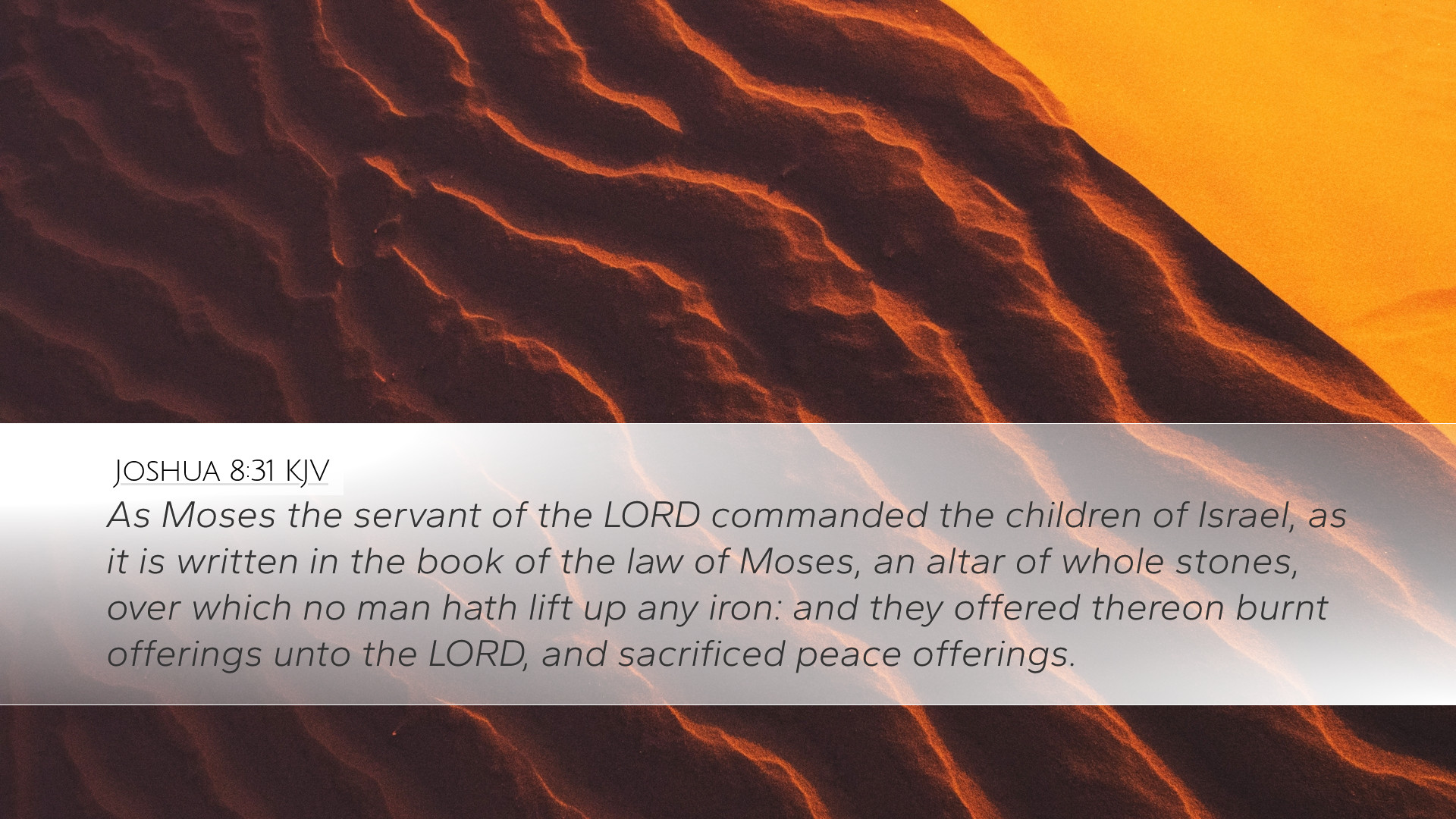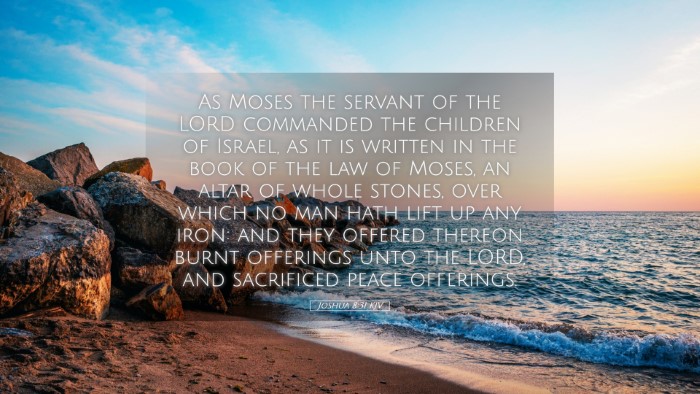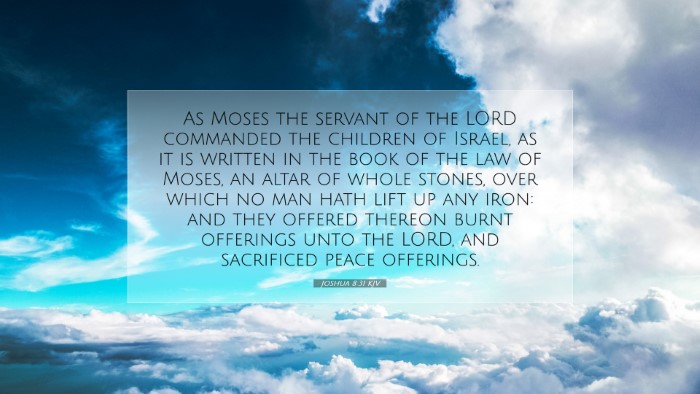Commentary on Joshua 8:31
Verse: "As Moses the servant of the LORD commanded the children of Israel, as it is written in the book of the law of Moses, an altar of whole stones, over which no man hath lift up any iron: and they offered thereon burnt offerings unto the LORD, and sacrificed peace offerings."
Introduction
This verse narrates a significant event during the Israelites’ conquest of Canaan under Joshua’s leadership, specifically concerning the establishment of an altar on Mount Ebal. This act is rich in theological and historical significance, intertwining themes of obedience, worship, and covenant renewal.
Exegetical Analysis
The command to build an altar "of whole stones" as prescribed by Moses is fundamental here. Stones unhewn by iron emphasize purity and the natural creation of God, symbolizing that the altar is not a product of human craftsmanship but a divine ordinance. The reference to Moses underscores the continuity of God’s covenantal promises through Israel’s leadership.
Historical Context
The context of this event lies at a pivotal moment in Israel’s history, just after the conquest of Ai. Following the victory, Joshua follows the directives given in the Law, highlighting his commitment to ensuring that Israel remains faithful to God’s directives. This serves as a stark reminder to subsequent generations about the importance of obedience to God’s word.
Spiritual Significance
This verse illustrates the essential components of worship in the Israelite tradition: it is marked by sacrifice (burnt and peace offerings) and compliance with God’s instruction. The burnt offerings symbolize the dedicated dedication to the Lord, while peace offerings signify communal fellowship with God, which is vital for maintaining right relationship with Him.
Theological Insights
- Obedience to God’s Commands: Joshua’s act of building the altar models for us that obedience to God’s commands brings blessings. As reflected in Matthew Henry’s commentary, this obedience opens a pathway for worship and communion with God.
- The Nature of God’s Worship: The unhewn stones signify that true worship must not stem from human manipulation but must be conducted according to God’s design. Albert Barnes highlights the importance of authenticity in worship practices, showing how God desires a heart aligned with His will.
- Symbolism of the Altar: The altar stands as a place of atonement and reconciliation with God. Adam Clarke notes that it represents the foundational aspect of the Israelites’ relationship with God, aimed at acknowledging their dependence on Him for forgiveness and grace.
Applicational Reflection
For pastors and theologians today, the principles derived from Joshua 8:31 invite us to consider the integrity of our worship practices. In an age where worship can often reflect cultural trends, there is a continuous need to return to biblical foundations. This verse serves as a reminder that our worship must be characterized by holiness and adherence to God’s commands.
Lessons for Leadership
Joshua’s leadership serves as a model for present-day church leaders. His example emphasizes the need for leaders to prioritize God’s commands in their ministries. It challenges leaders to engage their communities in authentic worship and ensure that their practices resonate with scriptural teachings.
The Role of Sacrifice
The sacrificial nature of the offerings given at the altar points towards the ultimate sacrifice of Christ. The New Testament resemblance in this act establishes a continuum in understanding redemption history—where the act of offering in the Old Testament paves the way for understanding the completeness of Christ’s sacrifice on the Cross.
Conclusion
In conclusion, Joshua 8:31 is more than a historical recounting of Israel’s conquest; it serves as an enduring exhortation for faithfulness, purity in worship, and covenant loyalty to God. As we contemplate this passage, may it inspire us to emulate Joshua’s devotion and commitment to the Lord, ensuring that our Altars, both literal and metaphorical, are built according to divine direction and with reverence for God’s holiness.


